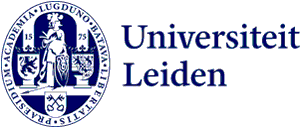
This is what our experts say about the departure of Mark Rutte
Mark Rutte: an exceptional politician whose time was up. What are the consequences of Rutte’s departure for the VVD (Party for Freedom) and Dutch politics? Experts from Leiden University give their view on this political event.
Simon Otjes, assistant professor of Dutch Politics
‘With the departure of Mark Rutte we are losing an exceptional politician. He is someone who understands Dutch political culture like no other and is completely in his element in Dutch politics. Rutte fits in incredibly well with the way we do politics in the Netherlands. And when I look at who is emerging now, I don't see any politician of that calibre.’
'Who could fill the gap left by Rutte, and who could take on the premiership?'
Rutte’s departure has altered the dynamics and the tone of the coming elections. Whereas it was initially about being satisfied or dissatisfied with the Rutte IV coalition and his 13-year premiership, it is now about the question of who will be the Netherlands’ next Prime Minister. Who could fill the gap left by Rutte?
It will also depend on the decisions that political parties are now going to make. The VVD won the last election on the strength of Rutte’s popularity, so who will the party appoint as its leader? This is also a big question for the BBB (Farmer-Citizen Movement) because everyone who can do something in that party already holds a position. The left-wing bloc doesn’t yet have a party leader either, and for D66 (Democrats 66) it is not certain whether Sigrid Kaag will continue. Someone like Pieter Omzigt could stand out as a potential prime minister, partly because he has won the trust of a lot of people. But he will have to be able to set up an organisation in the time left until the elections. Things will be clearer after the summer break.’
Tom Louwerse, associate professor of Political Science
Rutte's resignation brings his premiership to a rather sudden end. Events in politics can suddenly put a lot of certainties in jeopardy. At the end of June, Dutch broadcaster NOS still wrote, based on the Polling Guide I produce, that we had entered a period of calm. Now the cabinet has fallen, Rutte is leaving, Hoekstra is on the way out and the PvdA (Labour Party) and GroenLinks (Green Left) political parties are pushing ahead with their plans for joining forces. That could have major effects on electoral behaviour.
'The question for the VVD now is what the future profile of the party will be.'
'The question for the VVD now is what the future profile of the party will be. Their previous election campaign revolved entirely around Mark Rutte, and his leadership qualities. The VVD's supporters that that time had the impression that the coalition agreement was very left-wing, because the party had to make many concessions to D66. The VVD had shifted to the left, was the image among voters. That image may now stick. Besides, the big vote winner is gone. That puts the VVD in a very uncertain position.
‘This uncertainty also applies to the rest of Dutch politics. We have had a period of coalitions that were mainly in the political centre. Forming such a coalition again will be even more difficult this time around. There may be a majority with right-wing parties like the BBB. But then the PVV (Party for Freedom) would probably have to join, and that party is still excluded by the VVD. Finding a majority and bridging differences of opinion is precisely what Rutte was good at, until last week. He was pragmatic, could talk to anyone and had no clear-cut vision - at least that is how he presented himself. It remains to be seen whether the next party leader will be able to do the same.’
Roel Bekker, lecturer at the Institute of Public Administration
‘I’m not surprised that Rutte has said that he is leaving politics. I was actually more surprised that he announced so firmly on Friday that he wanted to continue as party leader. He has seen all there is to see by now. We have a tradition of prime ministers being in post for a very long time. And at the end of their time they are all faced with announcing or feeling that it is time to go. Rutte must also have felt increasingly in the firing line. In that case it is better to quit at your near-high point.
'The summer will be a very interesting and incomprensible journey of searching for suitable party leaders.'
Rutte's departure is a scenario the VVD has been working with for some time. For ages there has been speculation that he will become the new Secretary-General of NATO. Several potential party leaders have already been in the picture in recent years. Edith Schippers and Klaas Dijkhoff, for example. The latter has, of course, said he intends to leave politics, but he hasn’t been written off yet. And the VVD has other irons in the fire, such as Dilan Yeşilgöz-Zegerius. I think PvdA/GroenLinks and the CDA (Christian Democratic party) will have much bigger problems finding a new party leader. And for D66, too, things are still uncertain, as Sigrid Kaag has said she is not at all happy.
'The summer will be a very interesting and incomprehensible journey of searching for suitable party leaders. It will all take place in the utmost secrecy. Elections are planned for November and then there won't be a new government until spring. So for now, Rutte is not gone yet.’
Text: Dagmar Aarts, Tom Janssen and Sabine Waasdorp
